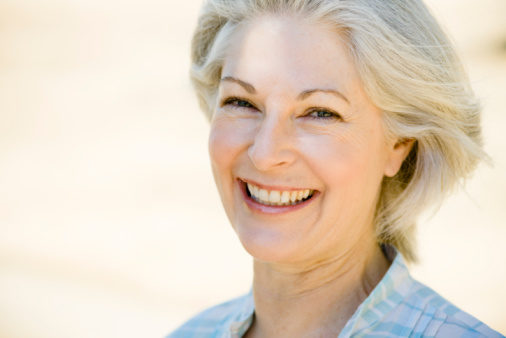Bloomington, IN—Helios Corporation and Sunbio recently launched the Safety vs. Uncertainty Initiative in an effort to clarify viable, safe active ingredients in the menopause support arena.
In the process of developing its EstroG-100 ingredient for menopause care, the firms say they have observed many inaccuracies and misleading information circulating about established menopause-support products such as soy and black cohosh. And, women trying to choose the best supplements have “fear and uncertainty” about which botanical supplements to use in lieu of hormone replacement therapy. Buyers should have access to published documents to understand the risks associated with some menopausal ingredients. In a press statement about their “SVU Initiative,” Helios Corporation and Sunbio stated they have “deep concerns about what is happening in the industry and which might lead to even more burdensome restrictions and guidelines with the FTC and FDA.”
The pair have created a model of safety and efficacy that menopause-support ingredient suppliers could follow during and after product development; such guidelines would essentially be ground rules that demonstrate 100% safety of their products. “That standard is based on what we view as practical elements that are necessary for end use manufacturers to understand the kind of data they have before they go to market with a finished product in this category,” Michael G. Jeffers, president of Helios, told WholeFoods. “Therefore, our guidelines are representative of the specific components needed in the study of a menopausal ingredient.” Helios and Sunbio have conducted many of their own such trials in seeking New Dietary Ingredient (NDI) approval for its menopause-support ingredient, a designation which they recently received from the U.S. Food and Drug Administration.
States Jeffers, “Companies may or may not follow our guidelines, but the goal and the intent is to get the consumers aware of what their expectations should be when they are shopping for an ingredient at the counter. The consumer needs to have links to evaluate studies published by institutions such as the NIH, major universities or established associations for the menopausal category.”
The SVU Menopausal Ingredient Code requires active ingredients be supported by two human clinical trials to “prove safety, efficacy and performance.” Such studies should involve a minimum of 40 women.
In terms of safety, suppliers must prove through affinity testing that there is no risk of cancer for women taking the ingredient; that the product is not toxic to the liver; that there’s no link of the Menopausal Active Ingredient to breast cancer (as proven via MCF-7 studies); and their active ingredient passes four- and 13-week toxicity and genetic toxicology tests.
Helios Corporation and Sunbio used SupplySide West 2010 as a venue to discuss this initiative, and invited industry companies to sign a commitment form indicating they would abide by the guidelines. According to Jeffers, numerous industry firms have come forward to say they will support the initiative. He anticipates additional guidelines may be developed in the near future that cover other product categories as well.
Published in WholeFoods Magazine, December 2010 (online 10/28/2010)










